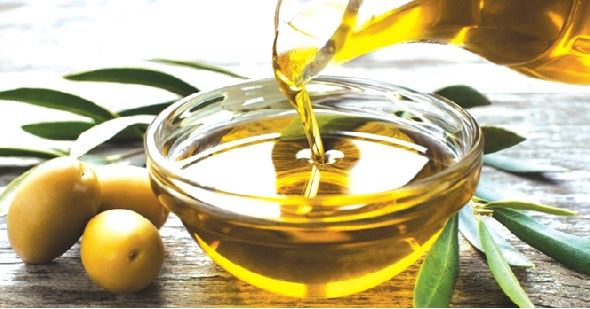
Anointing is medicinal
The use of the anointing oil is paramount in the Christian faith. However, eminent medical professionals do prescribe oils in clinical settings.
Advertisement
This means that medical science believes in healing with oil. So, why should people complain when Pastors also anoint their congregants with oils?
For instance, doctors prescribe cod liver oil for consumption, and there is plenty of testimony to prove that its virtues have not been overrated and that it has always been taken internally.
Recent research by Dr Simpson of Edinburgh, the first applier of chloroform as an anaesthetic agent, proves that when oil is applied externally, it both cures and prevents disease, and there is, therefore, some prospect in the ancient Oriental practice of oil-anointing.
He believes that anointing with oil is an excellent thing for consumptive people. Cod liver oil is supposed to be the "best because it is the strongest” and if not only for its loathsome taste, he believes it should have been more widely used.
I once listened to a message by Rev. Eastwood Anaba on Signs and Tokens. In the message, he explained that God could use anything to do what He wanted, be it water, saliva, or even sand. Signs and tokens are part of the way of life of Christians.
Science cannot explain, or understand how He works. I am a believer, as well as a scientist, but God’s ways are beyond human comprehension.
In Mark 6:13 and James 5:14-15, anointing sick people with oil is referred to twice in the New Testament. Mark 6:13 says, “And they cast out many demons and healed many sick people, anointing them with olive oil.”
James 5:14-15, also says, “Is anyone among you sick? Let them call the elders of the church to pray over them and anoint them with oil in the name of the Lord. And the prayer offered in faith will make the sick person well.”
I believe in it as a Christian, because anointing oil is medicinal. It is also a symbol of God’s power to heal and symbolic of the Holy Spirit, the Spirit (the breath) of Christ.
Anointing
Anaba (1996) defines anointing as the supernatural ability of God that is given to a person, to enable him or her to undertake an assignment for God, at a particular place, at a particular time, and in a definite manner.
He also states that the anointing is active, efficient and operative. Therefore, one cannot conceal the activity of the anointing as it will show itself forth. He further suggests that the anointing is a superior force stronger than the resistance of one‘s weakness.
Oyedepo (2005), talking about the practical dimensions of the anointing, mentioned anointing for battle, anointing for conquest, anointing for wealth, anointing for enthronement, and anointing for restoration. Hemry & Lynnes (2007) say anointing oil in itself possesses no mystical properties.
Science
Roland Owusu Ansah's (2011) thesis titled The Usage of Anointing Oil in some Charismatic and Neo-Prophetic Churches in Kumasi in the Context of Leviticus 8:1-12, and James 5:14-15 examined how and for what purposes anointing oil is used among Charismatic and Neo-Prophetic churches in Ghanaian Christianity.
He found that most of the prophets had given some names to the anointing oil they used. Onyame y3 tumi [God is powerful]; dade1 bi twa dade1 mu [one metal is sharper than another metal]; and me kwan so hann [light for my path]; odumgya [fire quencher]; nkuto power [shea butter power]; and atentam [wrestling].
The akwankyer3 (direction) given for the use of the oil differs from one prophet to the other and from one church to the other.
It was discovered that people who use anointing oil believe in the potency of the medium.
It recommends that if Christianity must be potent for the people to believe that it works, the church would have to consider its practices again in the light of this, and that the church ought to use oil that is indigenous to the environment it is situated in.
Research (Bengston & Krinsley, 2000; Sicher et al., 1998) has demonstrated that when we pray with love and focused intention, our choice to focus our energy toward the goal of healing another has, on a quantum level, an actual physiological healing effect upon the one being prayed for.
Take home
Anointing with symbolic “holy” oil does not create a magical event, but it enhances the power of the mind—what some call the “placebo effect.”
The placebo effect is not fake; it is the healing impact that the mind exerts on the body when one believes the intervention will work. This healing impact is real and measurable.
The brains of people who receive sugar pills but believe they are pain pills will release brain-produced endorphins and enkephalins, which are brain-produced opiates that cause real physical pain relief. But if the person knows it is a sugar pill, the brain will not release the endorphins or enkephalins.
The writer is a Professor of Naturopathic Healthcare, Medical Journalist, author and science writer.
E-mail: [email protected]



